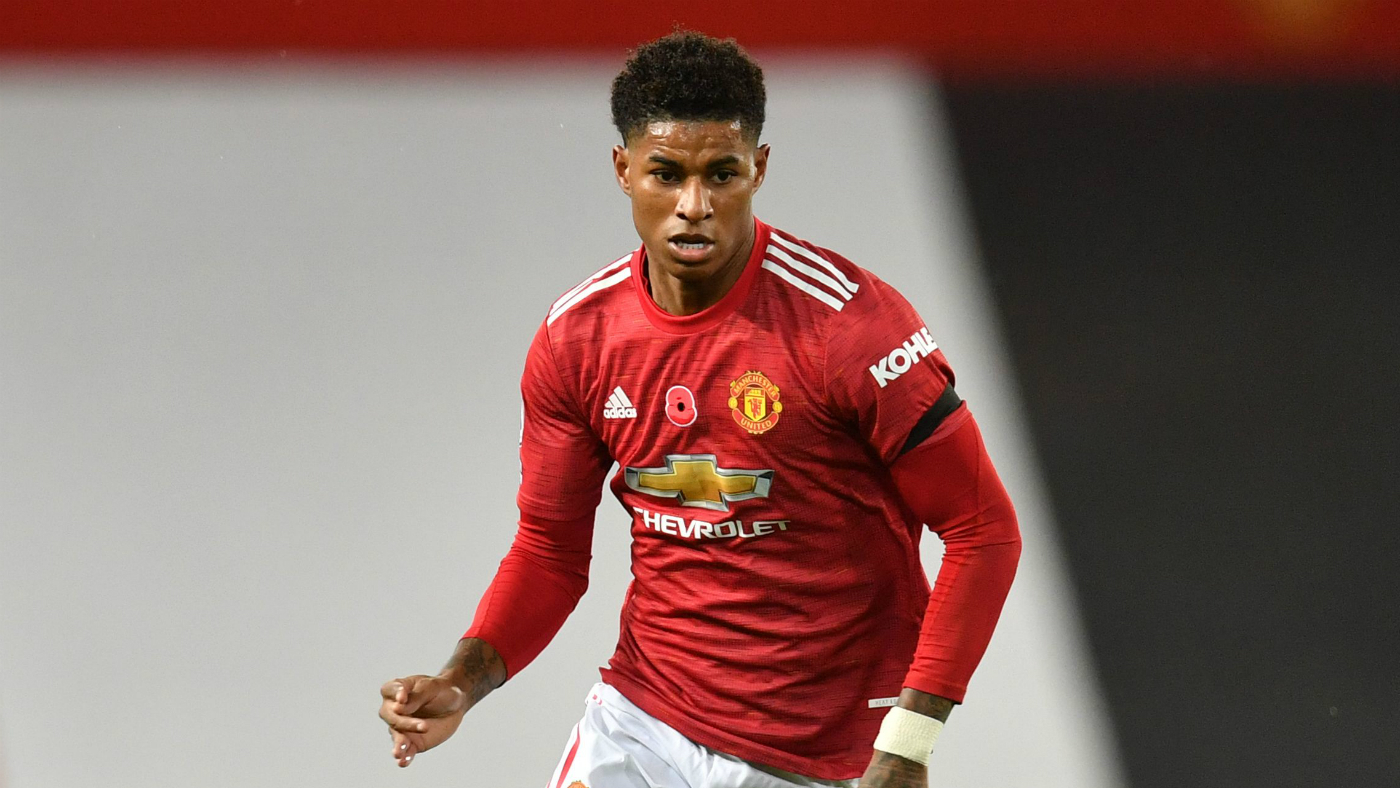Jab campaign: how ‘sensible’ celebrities will sell Covid vaccine to sceptics
Insiders says Marcus Rashford and members of Royal Family being eyed up for NHS campaign to counter anti-vax theories

A free daily email with the biggest news stories of the day – and the best features from TheWeek.com
You are now subscribed
Your newsletter sign-up was successful
NHS bosses are planning to enlist “sensible” celebrities and social media influencers for a campaign to persuade the public to get vaccinated against Covid-19, according to insiders.
An NHS England source told The Guardian that the health service wants “people who are known and loved” such as footballer Marcus Rashford [pictured top], and who “have done sensible stuff during the pandemic”, to promote the jabs. The planned push comes amid growing fears that the spread of anti-vax theories online could jeopardise an effective rollout.
Why are health leaders concerned?
The Week
Escape your echo chamber. Get the facts behind the news, plus analysis from multiple perspectives.

Sign up for The Week's Free Newsletters
From our morning news briefing to a weekly Good News Newsletter, get the best of The Week delivered directly to your inbox.
From our morning news briefing to a weekly Good News Newsletter, get the best of The Week delivered directly to your inbox.
Hopes are growing that “the first of three potentially promising vaccines – Pfizer/BioNTech, of which the UK has secured 40 million doses – is set for regulatory approval within days”, says The Guardian. The government has also secured 100 million doses of the Oxford/AstraZeneca vaccine, and has increased the nation’s order for the Moderna jab to seven million doses.
But health chiefs are increasingly “worried about the number of people who are still undecided” about whether to get innoculated, and “about vaccine scepticism among NHS staff”, the newspaper reports.
“Some experts estimate a Covid-19 vaccine will need to be accepted by at least 55% of the population to provide herd immunity”, says the i news site. “Others suggest even higher numbers will be needed, such as 65% to 70%.”
However, a recent survey of 4,000 people by the London School of Hygiene and Tropical Medicine found that just 54% would “definitely” accept a vaccine. And “after being shown online misinformation, that number dropped by 6.4%”, according to a report on the university’s website.
A free daily email with the biggest news stories of the day – and the best features from TheWeek.com
What is the NHS planning?
Health service insiders say that celebrities and social media influencers will be enlisted to help combat misinformation about any Covid vaccine that is rolled out in the UK.
The Daily Mail reports that health bosses and government ministers are in talks with “responsible” high-profile stars to post positive messages about the jab.
“No celebrities have been confirmed but officials suggest Marcus Rashford, the England footballer campaigning to end child hunger, and members of the Royal Family would be ideal,” says the paper.
A source “with knowledge of the plans” told The Guardian that the high-profile figures who sign up will lead “a big national campaign” to drive take-up.
Politicians are not expected to join the line-up of trusted faces, however.
Instead, the celebs are likely to appear alongside “doctors who often appear on television and radio discussing health issues”, because of their “profile and the trust they are assumed to already have with the public”, the paper continues.
“Religious and community leaders are also being consulted in order to allay possible fears over the vaccine among black, Asian and ethnic minorities,” says the Daily Mail.
“Covid-19 vaccines will be crucial to helping to end this pandemic and returning our lives to near normal,” said Professor Heidi Larson of the London School of Hygiene and Tropical Medicine, who led the recent survey on vaccine uptake.
“However, vaccines only work if people take them.”
-
 How the FCC’s ‘equal time’ rule works
How the FCC’s ‘equal time’ rule worksIn the Spotlight The law is at the heart of the Colbert-CBS conflict
-
 What is the endgame in the DHS shutdown?
What is the endgame in the DHS shutdown?Today’s Big Question Democrats want to rein in ICE’s immigration crackdown
-
 ‘Poor time management isn’t just an inconvenience’
‘Poor time management isn’t just an inconvenience’Instant Opinion Opinion, comment and editorials of the day
-
 A Nipah virus outbreak in India has brought back Covid-era surveillance
A Nipah virus outbreak in India has brought back Covid-era surveillanceUnder the radar The disease can spread through animals and humans
-
 Trump HHS slashes advised child vaccinations
Trump HHS slashes advised child vaccinationsSpeed Read In a widely condemned move, the CDC will now recommend that children get vaccinated against 11 communicable diseases, not 17
-
 A fentanyl vaccine may be on the horizon
A fentanyl vaccine may be on the horizonUnder the radar Taking a serious jab at the opioid epidemic
-
 Health: Will Kennedy dismantle U.S. immunization policy?
Health: Will Kennedy dismantle U.S. immunization policy?Feature ‘America’s vaccine playbook is being rewritten by people who don’t believe in them’
-
 How dangerous is the ‘K’ strain super-flu?
How dangerous is the ‘K’ strain super-flu?The Explainer Surge in cases of new variant H3N2 flu in UK and around the world
-
 Vaccine critic quietly named CDC’s No. 2 official
Vaccine critic quietly named CDC’s No. 2 officialSpeed Read Dr. Ralph Abraham joins another prominent vaccine critic, HHS Secretary Robert F. Kennedy Jr.
-
 This flu season could be worse than usual
This flu season could be worse than usualIn the spotlight A new subvariant is infecting several countries
-
 Covid-19 mRNA vaccines could help fight cancer
Covid-19 mRNA vaccines could help fight cancerUnder the radar They boost the immune system